The days of low unemployment are numbered based on recent labour force data.
The Albanese Government has ramped immigration to unprecedented heights with around 500,000 net migrants arriving in the 2022-23 financial year.
Based on Friday’s monthly arrivals and departures data from the ABS, immigration has continued to rise:
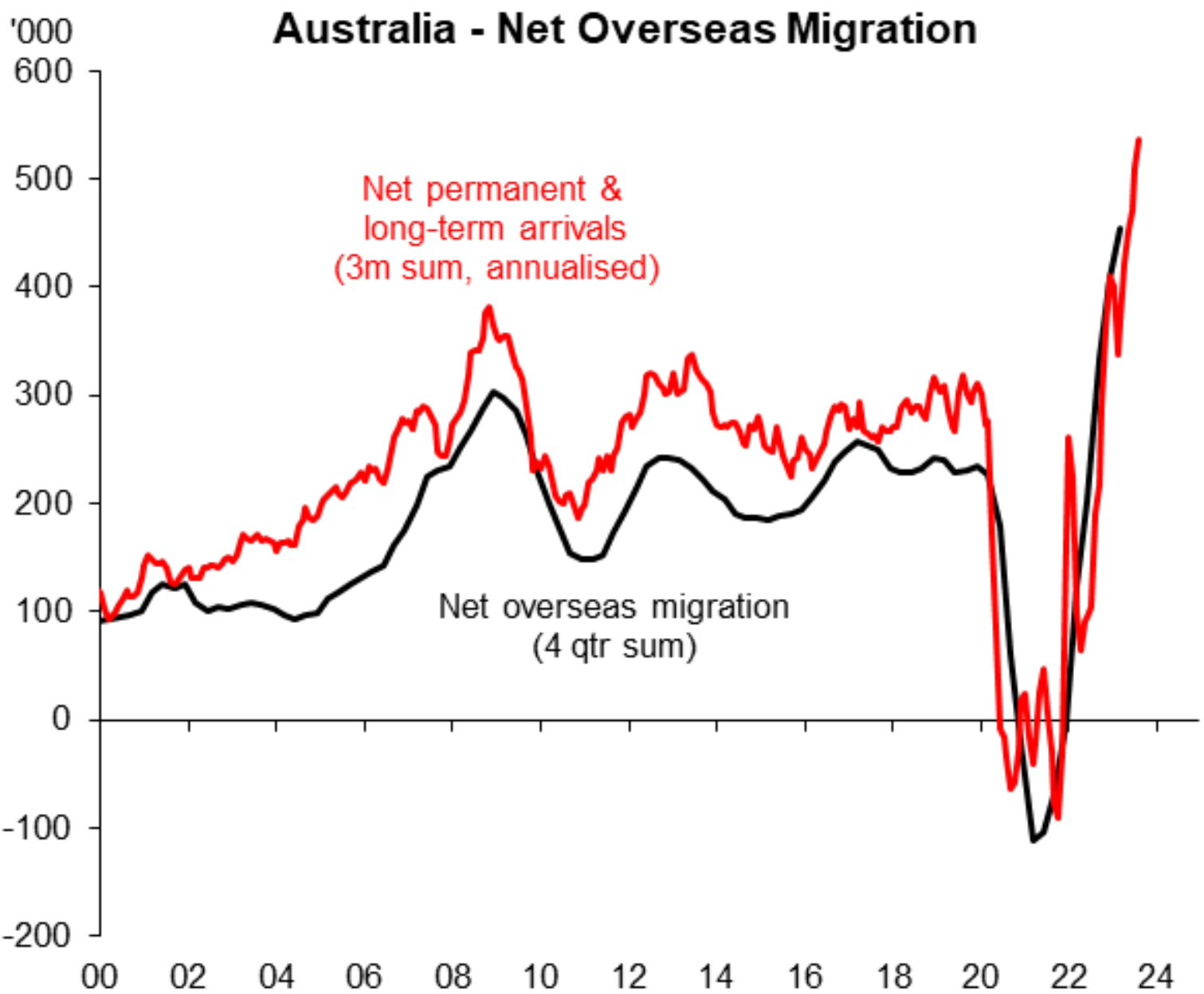
Source: Justin Fabo (Macquarie Group)
This surge in net overseas migration, alongside Peter Costello’s Baby Bonus kids hitting working age, has driven labour force growth to levels that Australia has never seen before at roughly double the pre-pandemic level:
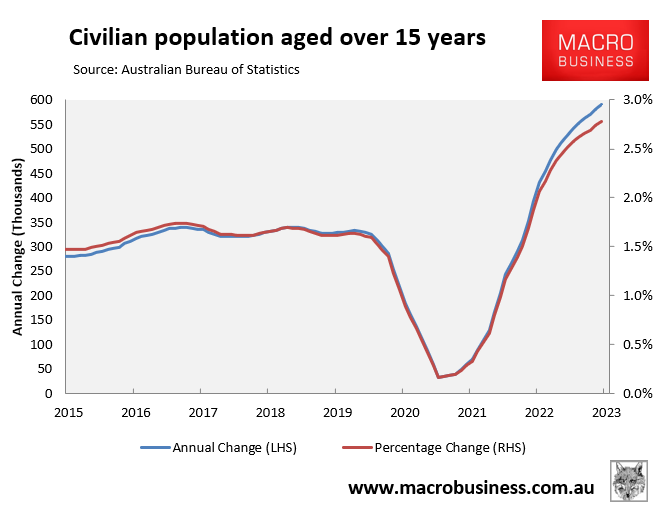
In turn, Australia needs to create around 35,000 jobs pre month just to soak up all of the additional workers, assuming a stable participation rate:
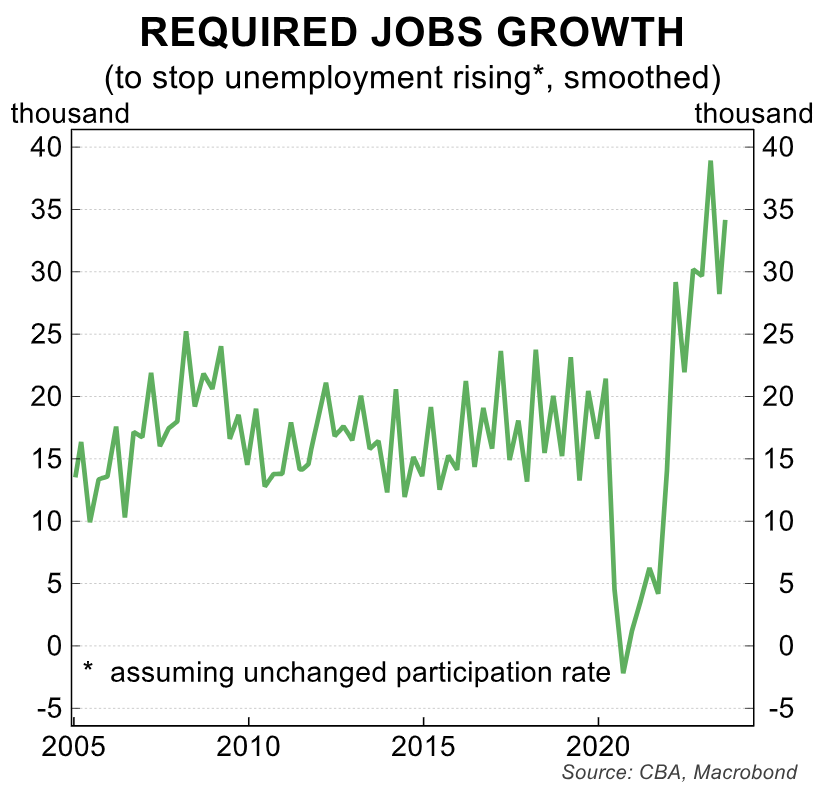
Roy Morgan’s unofficial labour force survey showed that total employment grew by only 50,000 in the year to September, meaning the number of unemployed surged by 362,000 (+2.1%) over the year:
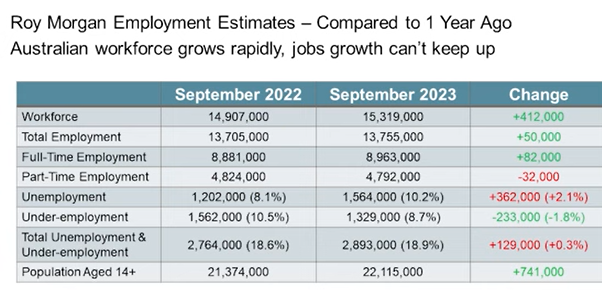
While this has yet to translate to the ABS’ official labour force survey, it is only a matter of time.
The latest employment report from SEEK showed that Australian job ads continued to fall in September.
More worryingly, the record labour supply growth has driven the number of applicants per job well above pre-pandemic levels:
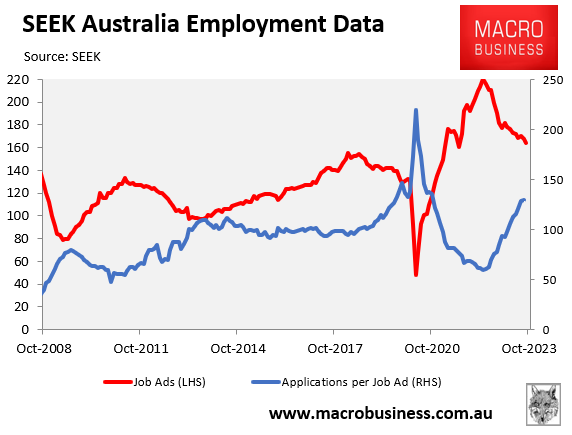
The number of applications to job ads has historically been a strong leading indicator for Australia’s unemployment rate, as illustrated clearly below:
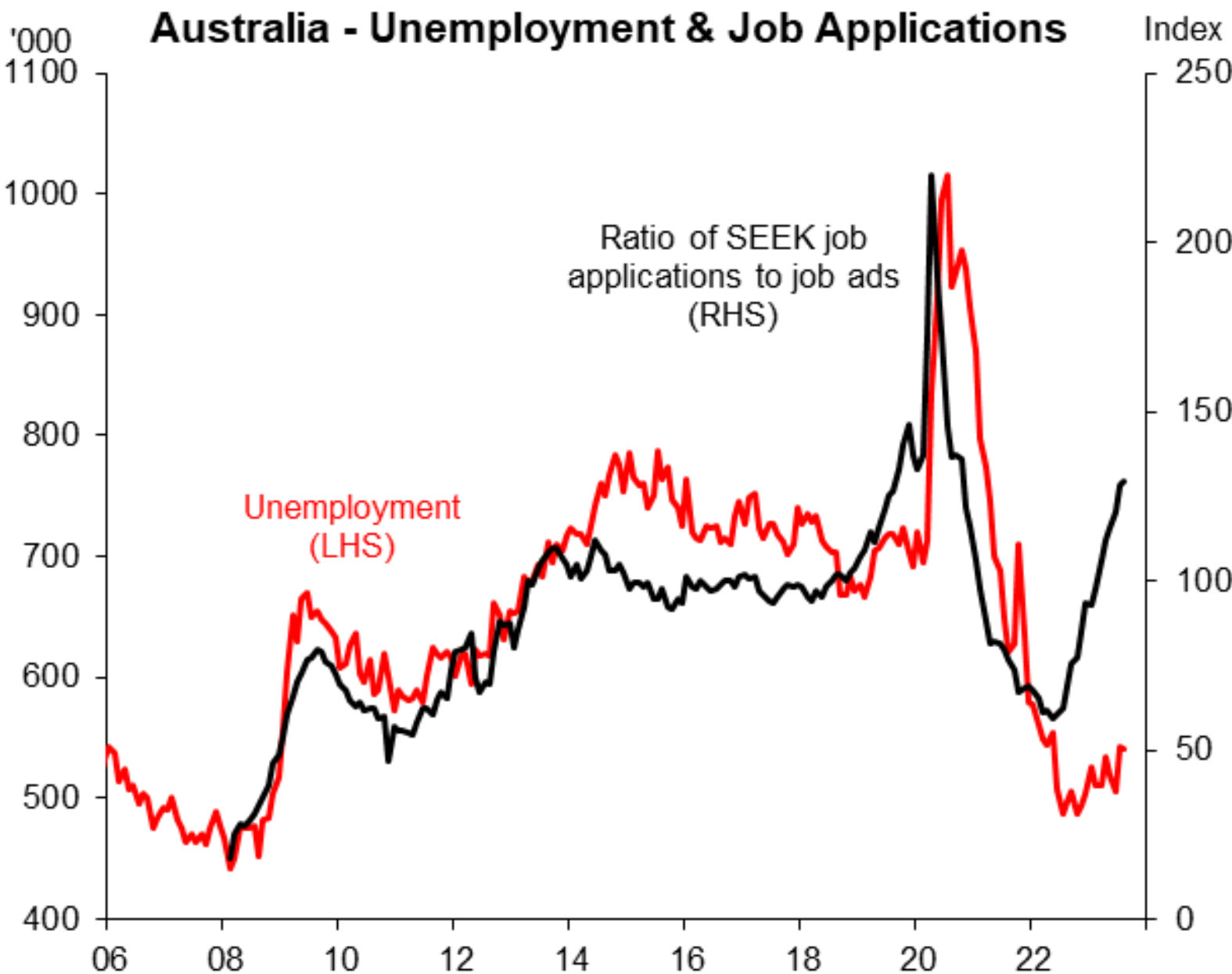
Source: Justin Fabo (Macquarie Group)
Thus, the ABS’ official unemployment rate should rise sharply into 2024.
Independent economist Tarric Brooker posted the below chart on Twitter estimating “what unemployment would look like if jobs growth fell back to pre-Covid 5 year average [22,000 a month] and if the current strong labour force growth continued”:
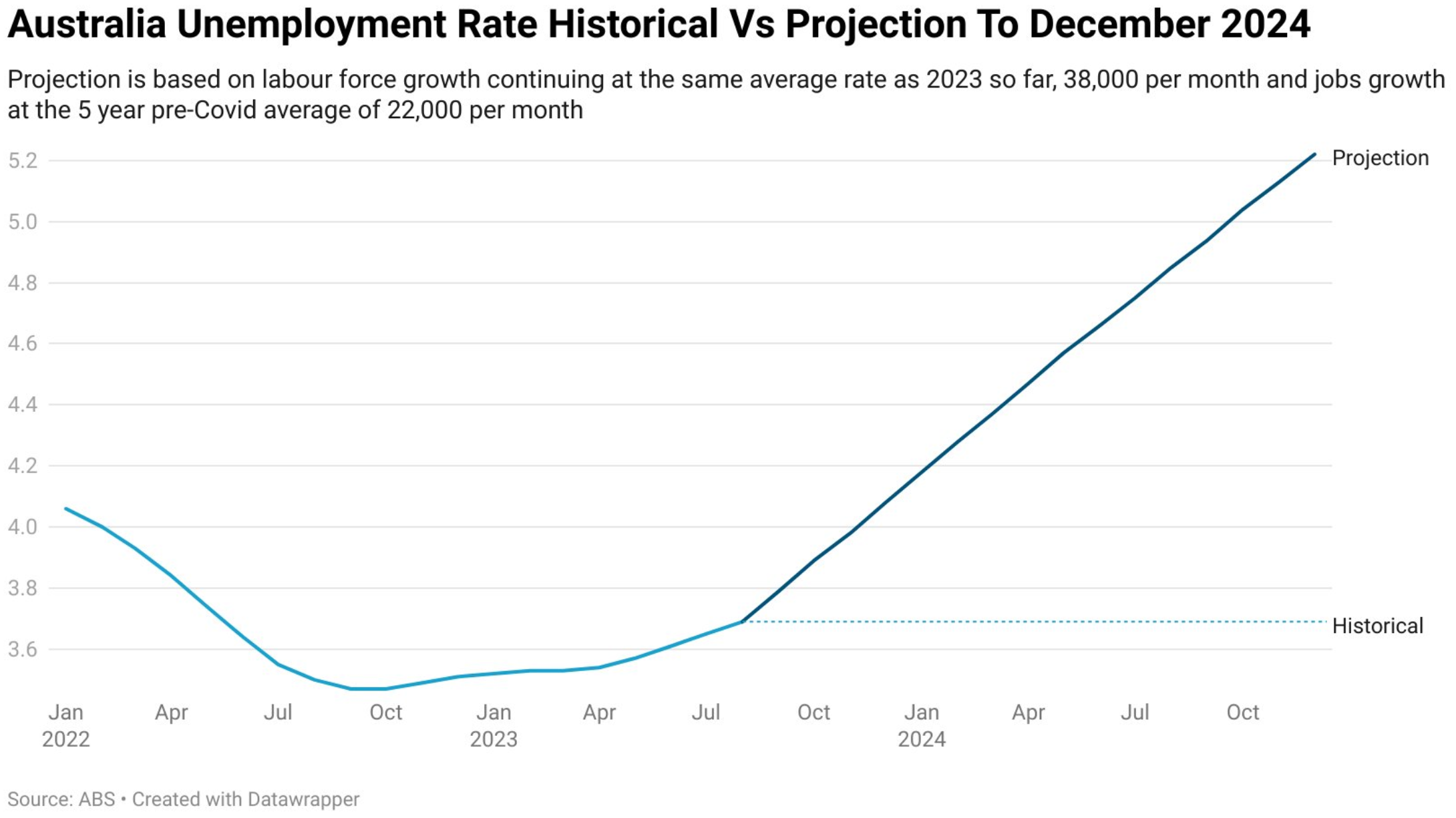
Source: Tarric Brooker
Australia’s unemployment rate would surge to around 5.3% in a year’s time.
“Considering the latest data suggests migration may be going even higher, the Aussie labour market has a problem”, warns Brooker.
The combination of soaring unemployment, slowing wage growth, and escalating rents will be disastrous for ordinary Australians.

